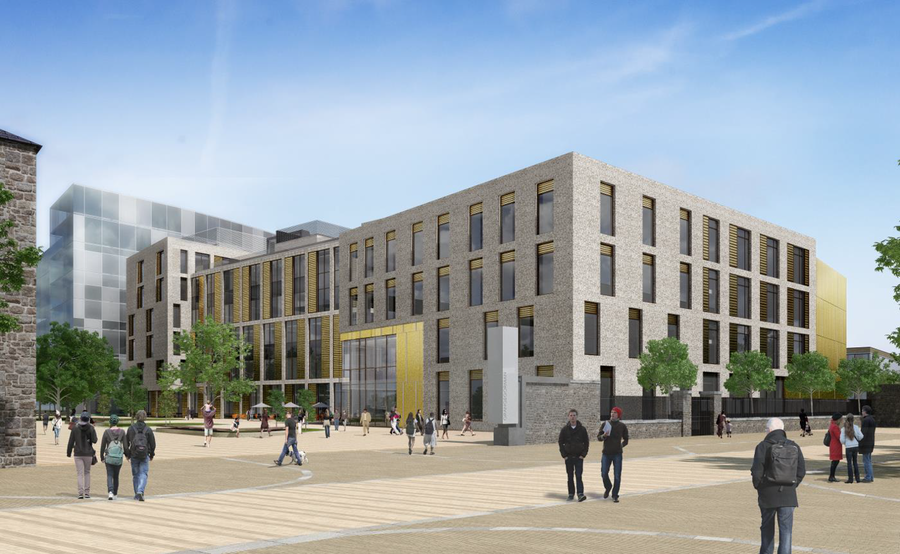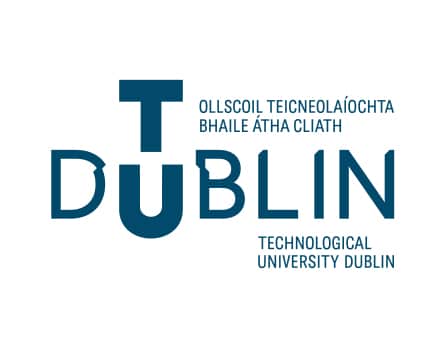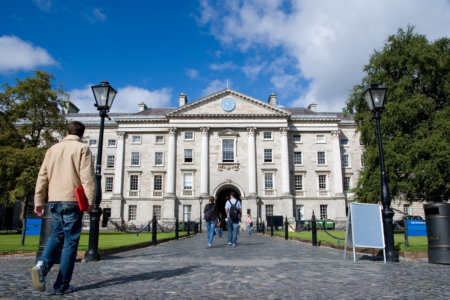As one of today’s fastest-growing fields, computing holds the potential to unlock not just a fulfilling career but the very future of mankind. IT is revolutionising every industry, with computing experts spearheading this transformation. The US Bureau of Labour Statistics predicts overall employment in computer and information technology occupations is projected to grow much faster than the average for all occupations from 2022 to 2032. About 377,500 openings are projected each year, on average.
Enter Technological University Dublin (TU Dublin). Recognised as one of the top 3% of universities globally according to Times Higher Education, TU Dublin delivers cutting-edge education and equips students with the skills necessary to thrive in today’s rapidly evolving technological landscape.
Nestled within the vibrant Grangegorman Campus, the School of Computer Science at TU Dublin is making waves with its state-of-the-art facilities and a portfolio of programmes designed to prepare students for the ever-expanding computing world. This school is committed to delivering programmes beyond theory, offering students the opportunity to engage with industry experts, internships, and projects to enhance their practical knowledge.
The School of Computer Science offers a distinct designed for graduates from non-computing disciplines. It’s a gateway for these students to obtain the essential computing concepts required for entry into the MSc in Computing programme. Graduates of diverse fields possess transferable skills in analysis and learning, allowing them to swiftly acquire a targeted set of computing knowledge — with the possibility to progress to the MSc in Advanced Software Development or the MSc in Data Science.
The programme is the best fit for students with a genuine interest in learning programming and understanding the core principles of Computer Science. It caters to beginners and follows a philosophy encapsulated by the mantra: “think big, start small, move fast.” With a curriculum structured to build from the ground up, the programme makes no assumptions about prior computing knowledge, ensuring an accessible entry point for all applicants.
Offered full-time for one semester, the programme provides flexibility by offering online and in-classroom delivery options. Students can choose their preferred learning mode, making the programme accessible and adaptable to various learning preferences and lifestyles.
The programme’s curriculum is meticulously crafted to cover the fundamental aspects of Computer Science, merging both theory and practical application. Each module includes lecture sessions and hands-on lab experiences, allowing students to not only understand theoretical concepts but also apply them in practice. The presence of dedicated lecturers and tutors during lab sessions ensures guidance and support as students navigate coursework and practical tasks.
The modules cover crucial aspects such as Object-Oriented Software Development, Information Systems, Architecture, Operating Systems and Networks, Web and User Interface Design, and Systems Analysis and Design, providing a comprehensive understanding of the field.
“You will learn to program using Python, how to design and build software and websites, how to access and build databases and all about the architecture of computers and their operating software,” says Jonathan McCarthy, a lecturer and course chair for the master’s qualifier conversion programme.

Students who successfully complete the programme will be eligible to begin the MSc in Computer Science the following September. Source: TU Dublin
For those who excel in the programme, an exciting array of opportunities awaits. Graduates exit with a Continuing Professional Development award in Fundamentals of Computing. Those who pass all modules, perform well in Object-Oriented Software Development, and achieve an overall average grade of 60% can seamlessly transition to advanced programmes such as the MSc in Advanced Software Development and MSc in Data Science.
What’s more, to adapt to the ever-changing landscape, TU Dublin has redeveloped the programme to make it 100% online. With weekly live online lectures and lab sessions, students can interact with lecturers and peers from the comfort of their own space. The program’s assessment strategy emphasises continuous assessment, eliminating the need for on-campus attendance.
Interested? TU Dublin’s admission criteria are inclusive, welcoming applicants with an honours bachelor’s degree (level 8) in a non-computer science discipline. Applicants with alternative qualifications and relevant experience are also considered case-by-case, ensuring equal opportunities for passionate learners seeking to pivot into Computer Science.
For non-native English speakers, demonstrating English language proficiency is necessary, with a minimum IELTS (Academic Version) English Proficiency of 6.5 overall (or equivalent) with no component scoring less than 6.
Keen to make TU Dublin your launchpad into the dynamic world of Computer Science? Click here to learn more.
Follow Technological University Dublin on Facebook, Instagram, X, YouTube and LinkedIn.













